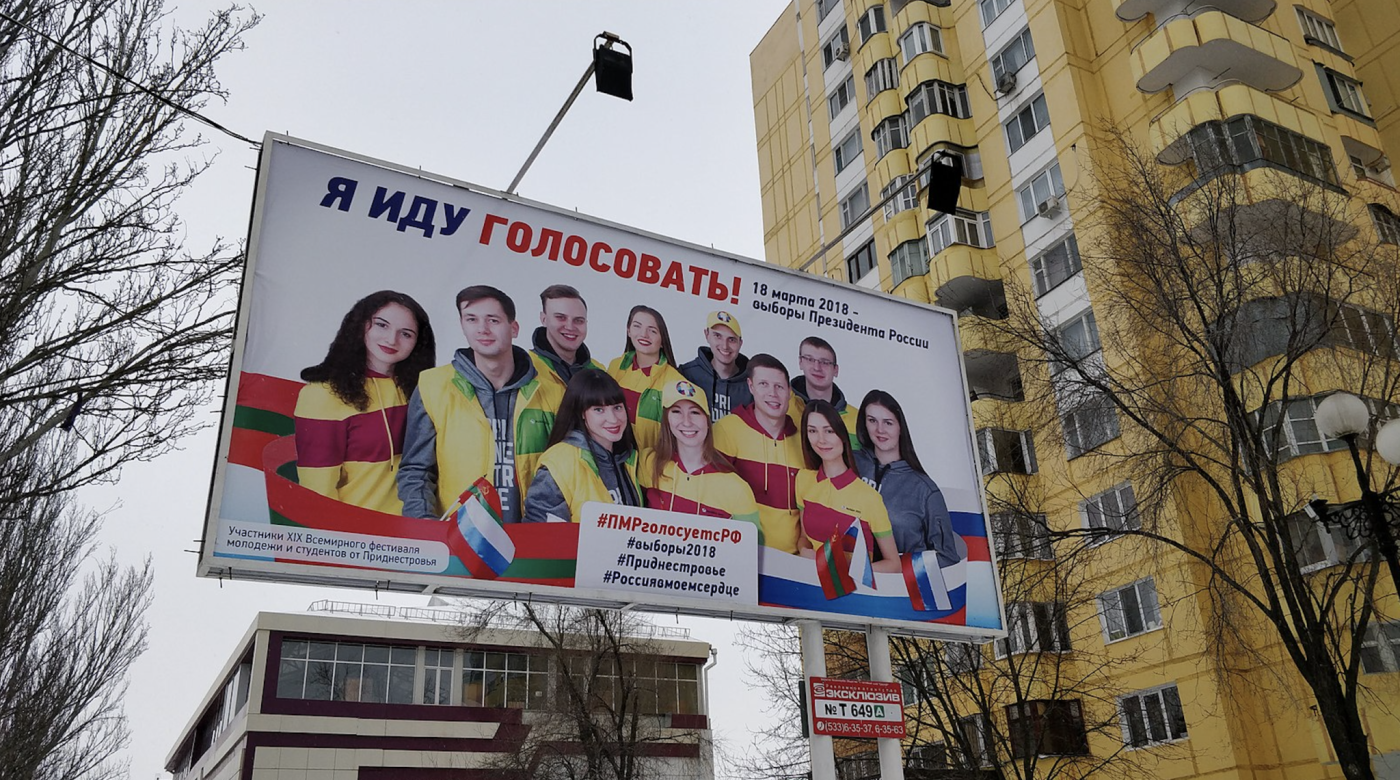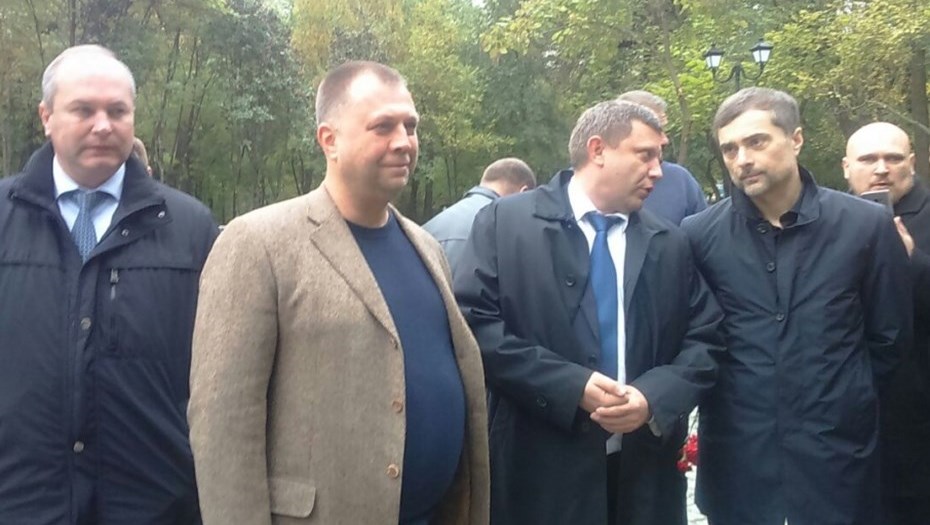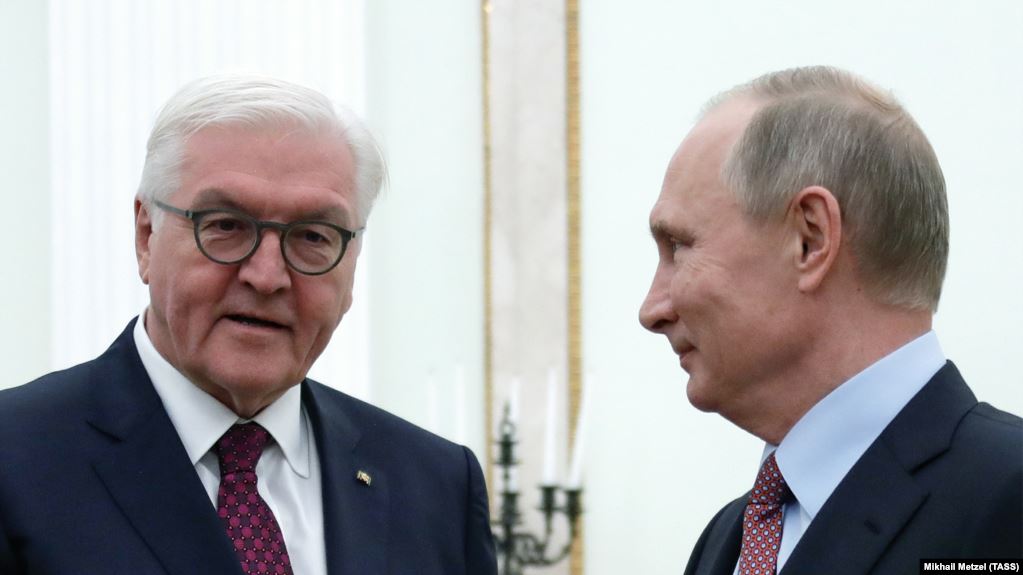From the standpoint of international law, these territories belong to Moldova, Georgia, and Ukraine, respectively; and their residents are technically citizens of those countries. From Russia’s standpoint, however, Crimea belongs to Russia; Abkhazia and South Ossetia are “independent states”; while Donbas and Transnistria are Russian-occupied de facto, although Russia officially denies having seized these territories from Ukraine and Moldova, respectively.
Russia maintains the pretense of recognizing Moldova’s territorial integrity, albeit under Moscow-dictated conditions. Russia officially de-recognized Georgia’s territorial integrity in 2008 by recognizing Abkhazia and South Ossetia as “states.” And Russia de-recognized Ukraine’s territorial integrity in 2014 by annexing Crimea, but claims officially to recognize Ukraine’s territorial integrity in Donetsk-Luhansk, albeit under conditions resembling those it demands from Moldova.
Russia opened 27 voting sections in Transnistria, a record number, apparently calculated to maximize the turnout among the 220,000 Russian-passport holders in that territory. (For comparison, Russia legally opened 16 voting sections in the vastly larger Germany.) Russian-passport holders in Transnistria account at this time for about one half of that territory’s steadily declining population. Many of them also hold Moldovan, Ukrainian, and/or Romanian citizenships simultaneously for convenience, but few or none cast votes in those countries’ elections.
Traditionally, Russia allocates Transnistrian voters to electoral districts across Russian territory. Russia’s Central Electoral Commission is tasked with tabulating the votes from Transnistria. Five candidates to the State Duma (including two incumbent members) campaigned intensively in Transnistria. According to official returns, the turnout was 59,000 (about one third of eligible voters over 18 years of age). The United Russia party of power received 76 percent of the votes cast in Transnistria. Due to the allocation system (see above), Transnistrian voters helped elect seven deputies to the incoming Duma, six of them from United Russia (RFE/RL, September 16, 17; Pervyi Pridnestrovskiy Kanal, Novosti Pridnestrovia, September 20–22).
This operation was conducted unlawfully on what is internationally recognized (even by Russia) as Moldovan territory, and without the Moldovan government’s consent. It was, however, conducted with the enthusiastic cooperation of local Transnistrian authorities (albeit not recognized by Russia officially) and of the Abkhaz and South Ossetian authorities (officially recognized by Russia).
Russia opened nine polling stations in Abkhazia and ten in South Ossetia. In those territories, 85 percent to 90 percent of residents were given Russian passports illegally during the years under Russian control. According to Russian open sources, Abkhazia’s current population is some 240,000, and South Ossetia’s “over 50,000” (including the ineligible voters under 18 in both territories).
Voter turnout was only 14,500 in Abkhazia and some 11,000 in South Ossetia for the Duma’s elections, according to preliminary results (TASS, Sputnik, September 20–22). As in Transnistria’s case, voters in Abkhazia and South Ossetia are allocated to electoral districts in Russia, as if to underscore the integration of all these territories and their residents into Russia’s political system.
Trending Now
Ukraine, Georgia and Moldova have responded to this common challenge in separate ways. Although Russia had scheduled the voting well in advance, the three targeted countries failed to prepare a coordinated response; and they are failing again to coordinate their protests after the fact.
Georgia’s response is the strongest in its rhetorical terms. The Ministry of Foreign Affairs (MFA) “condemns the illegal opening of polling stations in Georgia’s occupied territories as another destructive step against Georgia’s sovereignty and territorial integrity, grossly violating the fundamental norms of international law.” Russia, exerting an “occupation and effective control of these regions,” has illegally “passportized” the remaining population, even as hundreds of thousands of residents have been turned into refugees or forcibly displaced. Georgia calls on Russia to implement the [European Union]-mediated 2008 ceasefire agreement by withdrawing its forces from Georgian territory (Mfa.gov.ge, September 20).
A separate Georgian MFA statement “condemns Russia’s annexation of Crimea” and does not recognize the legitimacy of elections held there in gross violation of international law and Ukraine’s legislation. Tbilisi’s statements, however, mention neither Ukraine’s Donbas nor Moldova’s Transnistria, notwithstanding the obvious analogies between the situation in those territories and that in Abkhazia and South Ossetia (Mfa.gov.ge, September 20).
The protest statement from Ukraine’s MFA is also fairly strongly worded, with direct references to Russia’s new breaches of international law, and calling for additional economic sanctions to be imposed on Russia (Ukrinform, September 17). But this is a “for the record” call, given the current international reluctance to impose additional sanctions on Russia. The Ukrainian statement omits any mention of Georgia’s and Moldova’s predicaments, similar as they are Ukraine’s. This is all the more surprising since Ukrainian government officials and analysts constantly point to the analogies between Donbas and Transnistria in terms of Russia’s strategy of protracted conflict.
Moldova’s MFA statement is the weakest by far. It takes merely the form of a comment by the ministry’s press bureau, the lowest available level; it is addressed not to Russia directly but to the public in general (Moscow might choose to notice or not notice it). The statement merely expresses “regret over the Russian side’s action that does not correspond with the principle of Moldova’s sovereignty and territorial integrity” (Mfa.gov.md, September 18). And Chisinau’s missive makes no mention of Ukraine, Georgia, their Russian-occupied territories, or solidarity among these three countries in their common predicament.
Read More:
- Russian elections in Ukraine’s Donbas: Annexing people before annexing territory
- Kremlin’s panic over “smart voting” ends any prospect election will be viewed as legitimate, Pastukhov says
- Russia shuttles residents of occupied Donbas to vote in Duma elections amid accelerated passportization
- The Russian elections and hidden regionalist politics
- Obey the Kremlin or pay up: why the EU’s heating bills will skyrocket this winter
- US House of Representatives may have just killed Nord Stream 2
- Hundreds of victims of war criminals in Russian-occupied Donbas await justice. Here is what can help them
- Here is how the US can truly help Ukraine move forward
- Ukraine’s security service busts Russian bot farm that undermined COVID-19 vaccination program
- Black is white, freedom is slavery, and Stalin’s invasion of Poland was ‘a liberation campaign,’ Russian Foreign Ministry says
- Kyiv airing disappointment with Western policies





